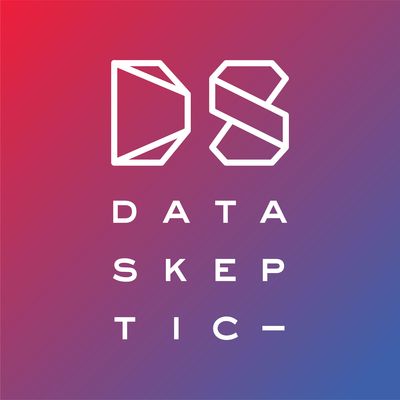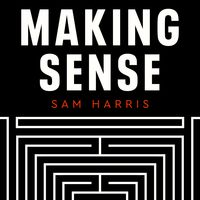The Data Skeptic Podcast features interviews and discussion of topics related to data science, statistics, machine learning, artificial intelligence and the like, all from the perspective of applying critical thinking and the scientific method to evaluate the veracity of claims and efficacy of approaches.
https://dataskeptic.com
Gesamtlänge aller Episoden: 11 days 3 hours 46 minutes
recommended podcasts
Signal in the Noise
In this episode, we are joined by Barbara Webb and Anna Hadjitofi. Barbara runs the Insect Robotics lab at the University of Edinburgh, and Anna is a PhD student at the School of Informatics at the university. She is interested in studying and...
Pose Tracking
Many researchers and students have painstakingly labeled precise details about the body positions of the creatures they study. Can AI be used for this labeling? Of course it can! Today's episode discusses Social LEAP Estimates Animal Poses (SLEAP), a...
Modeling Group Behavior
Our guest in this episode is Sebastien Motsch, an assistant professor at Arizona State University, working in the School of Mathematical and Statistical Science. He works on modeling self-organized biological systems to understand how complex patterns...
Advances in Data Loggers
Our guest in this episode is Ryan Hanscom. Ryan is a Ph.D. candidate in a joint doctoral evolution program at San Diego State University and the University of California, Riverside. He is a terrestrial ecologist with a focus on herpetology and...
What You Know About Intelligence is Wrong (fixed)
We are joined by Hank Schlinger, a professor of psychology at California State University, Los Angeles. His research revolves around theoretical issues in psychology and behavioral analysis. Hank establishes that words have references and...
What You Know About Intelligence is Wrong
We are joined by Hank Schlinger, a professor of psychology at California State University, Los Angeles. His research revolves around theoretical issues in psychology and behavioral analysis. Hank establishes that words have references and...
Animal Decision Making
On today’s episode, we are joined by Aimee Dunlap. Aimee is an assistant professor at the University of Missouri–St. Louis and the interim director at the Whitney R. Harris World Ecology Center. Aimee discussed how animals perceive information and...
Octopus Cognition
We are joined by Tamar Gutnick, a visiting professor at the University of Naples Federico II, Napoli, Italy. She studies the octopus nervous system and their behavior, focusing on cognition and learning behaviors. Tamar gave a background to the kind...
Optimal Foraging
Claire Hemmingway, an assistant professor in the Department of Psychology and Ecology and Evolutionary Biology at the University of Tennessee in Knoxville, is our guest today. Her research is on decision-making in animal cognition, focusing on...
Memory in Chess
On today’s show, we are joined by our co-host, Becky Hansis-O’Neil. Becky is a Ph.D. student at the University of Missouri, St Louis, where she studies bumblebees and tarantulas to understand their learning and cognitive work. She joins us...








































